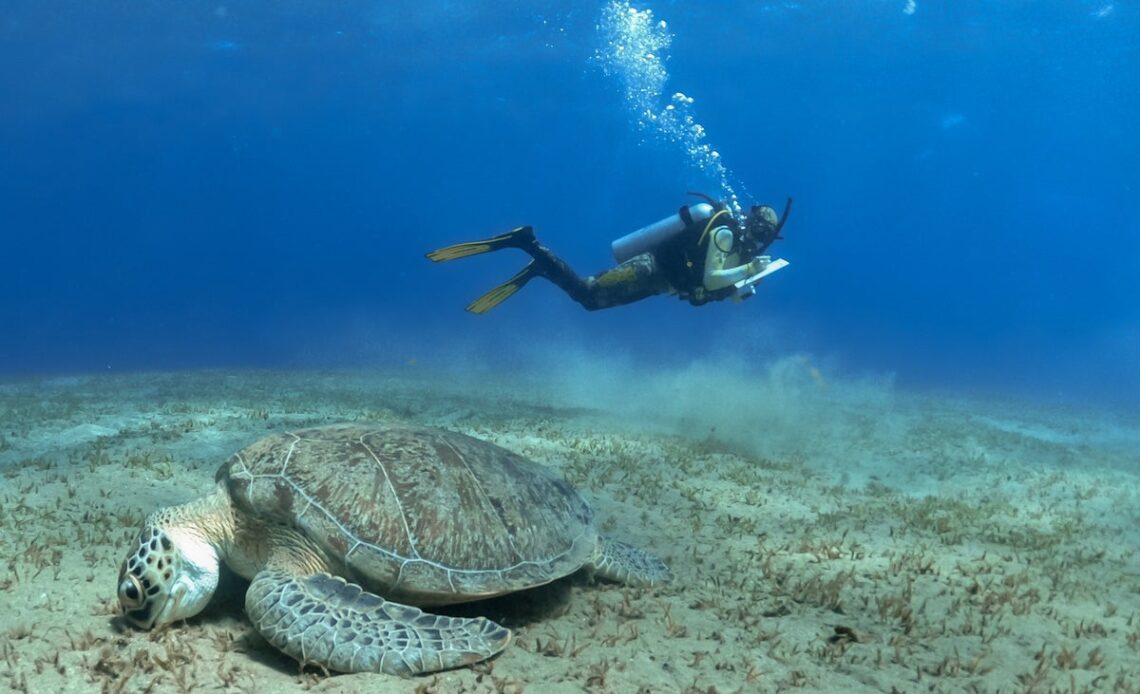“I thought I saw dolphins on the reef this morning, but as I got closer I realised it was actually a huge plastic bag.” Hossam Abdelaziz’s words were not the sort you’d expect to come from a dive instructor – especially one whose job it is to extoll the beauty of the Red Sea – but then, this was not just any dive centre.
Stationed 280km – a 3.5-hour drive – from the sky rises and all-inclusive chains of Hurghada, the small Egyptian family-owned resort of Marsa Nakari in Mara Alam has, since its inception, put the environment at the heart of its business plan. While government pressure pushed them to build more rooms, they based their maximum occupancy on what the reef could take without causing a negative impact (and simply appeased officials by putting up tents before surreptitiously removing them a few weeks later); when fossil fuels were heavily subsidised they bucked the trend and implemented solar power to reduce their carbon footprint. Now, while others resorts simply wax lyrical about the beauty of the coral in the waters, they run a number of conservation programmes to help empower divers to contribute towards the protection of the underwater world while they enjoy it. So it’s perhaps not surprising that Marsa Nakari, along with their other two small properties operating under the banner of Red Sea Safaris, has just been officially recognised as an Eco Dive Center by PADI (Professional Association of Diving Instructors) – one of only 11 in the world.
The beautiful reef is blighted by rubbish
(Phoebe Smith)
Amid its single-storey domed cabins, which made me feel I was an extra in a Star Wars movie, I was undertaking a ‘Divers Against Debris’ course, a certification which they offer to all divers, free of charge. In the short classroom session I had already learned how to safely remove rubbish from coral without damaging it, how to carry it safely to the surface and – perhaps most importantly – how to sort and log what I’d found on an app so that the data can be fed into the world’s largest underwater database, used by lobbying groups to fight for protection of marine areas and enact government policy change.
Read more on sustainable travel:
I suited up for my dive, a mesh bag in one hand and a glove on the other. As I descended beneath the waves I was greeted by several blue spotted rays, busily…
Click Here to Read the Full Original Article at The Independent Travel…
